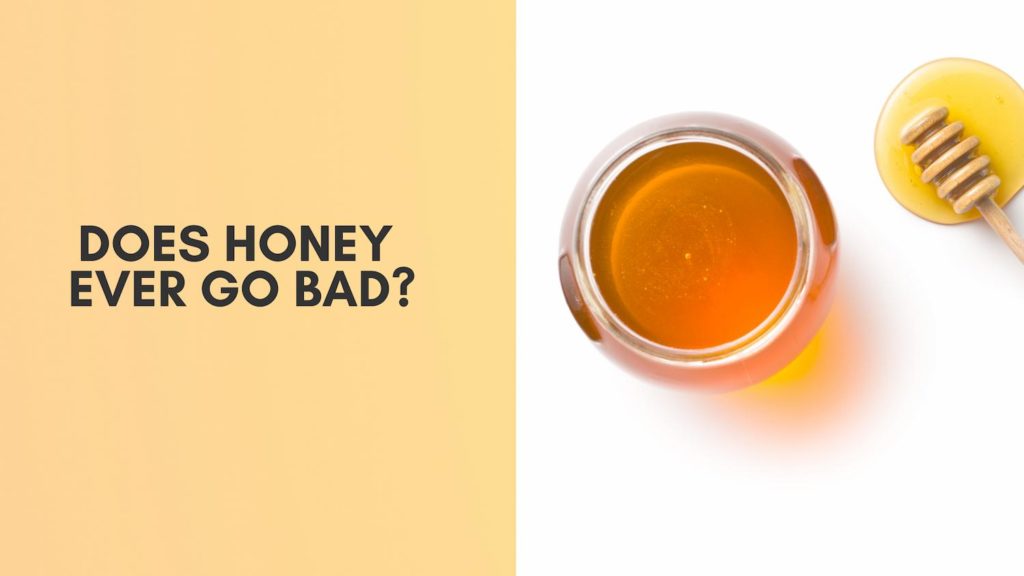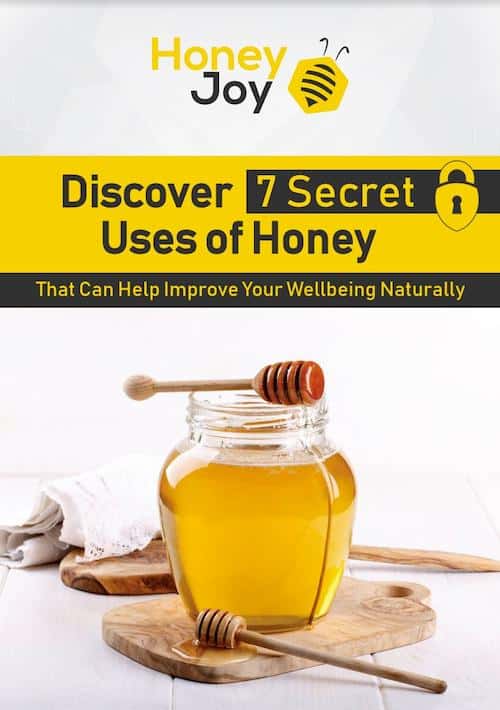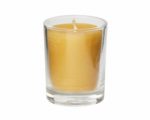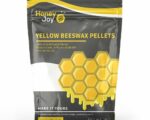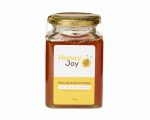The question posed by every member of the human population (not really, but I wanted to start this article with a bang!) – Can honey go bad?
That’s what I am here to answer.
In this article we are going to talk about honey, how long can it last (if stored properly) and does honey expire at all.
As a super-food, honey has been around for thousands of years (and will be around for thousands more, probably).
Key Takeaways
- Natural honey does not go off if stored properly.
- Honey has been used since ancient times and is considered to be completely safe.
- Honey is considered to be a super-food.
Honey
Honey (as most of us know) is a sweet substance that is made by bees. To make honey, bees use flower nectar (from different types of flowers).
Flower nectar is a watery solution made of sugars that are called fructose, glucose, and sucrose [1].
When the nectar is collected, salivary enzymes of bees are added (by the bees, of course) to begin the breakdown of nectar and in order to create the sweet substance we now call honey.
These enzymes are made by the bee’s hypopharyngeal gland [2].
Now, after a little info about honey (and how it’s made), let’s talk about the meat of the article, and try to answer the question – Can honey go bad?
Can Honey Go Bad?
Honey is considered to be a super-food and as most of us know, it can last a long, long time. But, the question now remains, what’s the expiration date of honey?
Well, the answer is thousands of years (sealed jars of honey were found in Egyptian tombs, and were still safe to eat). The secret behind this long shelf life is storage (more specifically proper storage of honey) [3].
How Long Can You Keep Your Honey Jar?
The answer to this question is simply – for years (maybe even decades). If properly stored, honey can (and will) last you a long time.
Because it’s primarily made up of sugars (around 80% depending on the type of honey), honey is one of the most stable types of natural foods in the world.
Now, if you choose to opt-out of getting natural honey, and instead buy yourself one of those “production lines” made in factory jars, you should keep a lookout for the “best by” date.
Big companies often add artificial ingredients to their honey (sweeteners, usually ) which in turn leads to having a “sweeter” product, that does, unfortunately, have an expiration date.
So, if you get yourself a jar of natural honey, and you want it to last as long as possible, here are a few things that you should keep in mind.
How To Know If Honey Has Expired?
Technically, natural honey can never, ever expire. But, if you don’t have one of those (meaning you bought a honey jar that has added sweeteners in it), there are some signs that you should look out for.
The first sign that “something is wrong” with your honey, should be a noticeable change in colour. Your honey will become darker and may start to lose its original flavour and aroma.
While this does not necessarily constitute a health risk, I would be remiss not to advise you to get another jar.
If your honey was exposed to moisture (or just water) it may undergo the process of fermentation. The worst-case scenario is that because of moisture, bacteria start to develop inside your honey jar.
Is Eating Old Honey Safe?
If all of the above-mentioned things (mostly regarding proper storage and honey being natural) are “check off”, then as far as safety goes, there is nothing to worry about.
Even though the flavour and aroma (and texture because of the crystallization) might be different and to some less appealing, it is still considered safe to consume.
If water has somehow contaminated your honey container, there is always a risk of bacteria forming in it (i.e. you didn’t properly store your jar). If that’s the case, I would always argue on the side of caution and advise you to just buy yourself another jar.
Shelf Life of Honey
If you store it properly, natural raw honey has an almost indefinite shelf life! Keep it away from moisture, direct sunlight and don’t add any water to it (and this goes without saying, but don’t leave your honey jar open!).
If you follow those steps, your honey jar should last for a lifetime (honey is a great treat to leave your grandchildren). So, technically speaking, natural honey does not have an expiration date (making it a super-food).
The only reason why honey would spoil is improper storage.
The best place to store honey would be a cool environment that is free from moisture. Honey can last for a long time (it essentially does not expire), which makes it the world’s most famous super-food.
FAQ
How to Properly Store Honey?
It’s easy, and there are only a few steps to follow if you don’t want your jar of honey to spoil.
First, make sure the container (the honey is stored in) is sealed tightly. This means that you should always make sure the lid is tightly screwed on.
The second thing you should be aware of is to keep the container the honey is stored in (in most cases that would be a glass jar) away from any moisture.
You should keep your jars of honey in a dry and cool place, away from moisture and direct exposure to sunlight.
The third thing you should know is that you should never add water to your honey. Adding water to honey is one of the most common reasons it goes bad.
Never add water to honey if you want to store it for a long time.
And, the last thing you should keep in mind in order to properly store honey, is that it should not be stored in metal containers (as it may lead to oxidation).
What Are the Health Benefits of Honey?
There are many benefits that come with eating honey (but only if that honey has no added sugar or artificial sweeteners).
Some research has shown that honey may have anti-cancer effects [4]. Honey has anti-inflammatory properties and is a great source of antioxidants.
Honey doesn’t spoil, which is why it’s considered to be a super-food.
Honey may also lower the risks of heart disease, as it was proven to lower blood pressure. Because honey is acidic, it’s essentially great at warding off (or destroying bacteria). That is why it’s used in medicine, as a means to treat wounds (usually burns).
The Bottom Line
We’ve almost reached the end of this article. So, for those who’ve just scrolled to the bottom (without reading anything) let’s give you a quick rundown of the things we’ve talked about.
Honey never spoils! Or, to be more precise, natural honey does not spoil. Some manufacturers tend to add sugar (or other types of artificial sweeteners) which may lead to spoilage and honey having an actual expiration date.
Don’t use metal containers to keep your honey in, as it may lead to oxidation (which could change the taste or colour of your honey).
Sources
- https://www.britannica.com/science/nectar
- http://honeybee.drawwing.org/book/hypopharyngeal-glands
- https://www.smithsonianmag.com/science-nature/the-science-behind-honeys-eternal-shelf-life-1218690/
- https://www.ncbi.nlm.nih.gov/pmc/articles/PMC3942905/
